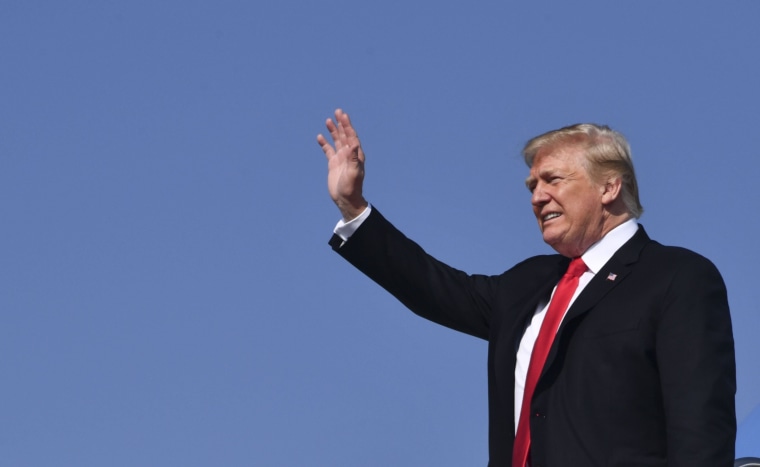The first sign of trouble came before Donald Trump was even sworn in. In mid-December 2016, the incoming Republican president's team inquired about including armored military vehicles in his inaugural parade.
Seven months later, French President Emmanuel Macron treated Trump to a Bastille Day parade, and the American leader's interest intensified. In September, Trump saw Macron at the United Nations and said he'd been inspired to organize a military parade down Pennsylvania Avenue. At the time, people in the room chuckled.
But Trump wasn't kidding. In February, ignoring the military's concerns, the Republican directed the Pentagon to move forward with plans for the event, and the White House's budget office said the parade would cost taxpayers as little as $10 million.
This week, however, the cost soared to $92 million, and the whole project was put on ice soon after.
The multimillion-dollar military parade through the nation's capital requested by President Donald Trump has been delayed until 2019, a Defense Department spokesman said Thursday."The Department of Defense and White House have been planning a parade to honor America's military veterans and commemorate the centennial of World War I," said Col. Rob Manning. "We originally targeted November 10, 2018 for this event but have now agreed to explore opportunities in 2019."
The specific wording suggests the parade may never actually happen. It's one thing to reschedule an event; it's something else to say officials will "explore opportunities in 2019."
The soaring costs created an awkward dynamic for the White House. When Trump agreed to cancel military exercises with our South Korean allies, he said it would save United States taxpayers a "fortune." The actual savings, however, worked out to be roughly $14 million.
The president's self-indulgent military parade would've cost more than six times that total.
We may never know for sure, but I'm curious about the process that led to the $92 million figure. It's no secret that military leaders were skeptical of the idea, but they weren't in a position to refuse a request from their Commander-in-Chief. Part of me wonders if the solution was hiking the cost to an unsustainable point, forcing the White House to back down.
Regardless, the fact that Trump was serious about such an endeavor remains unsettling. It's problematic enough that the president seems to care far more about ceremonial spectacles than governing, but it's equally alarming that Trump didn't understand why this parade was unwise.
Sen. Lindsey Graham (R-S.C.) suggested earlier this year that such a display would be "a sign of weakness." Sen. John Kennedy (R-La.) added, "Confidence is silent. Insecurities are loud. When you're the most powerful nation in all of human history, you don't have to show it off, like Russia does, and North Korea, and China. And we are the most powerful nation in all of human history. Everyone knows that, and there's no need to broadcast it. I think we would show our confidence by remaining silent, and not doing something like that."
It's a sentiment this president will probably never understand.
